#haxyr3
Note
hi! I don't think the russian word for man (мужчина I assume) is grammatically feminine. never seen this information. where do you get it from? (genuinely asking)
Well, I got it from studying Russian and from the fact that it literally ends in -a and the whole declination follows the feminine declination. It was one of the first things we were taught because it's an exception.
I mean, I guess, because the adjectives that go with it and the understanding of the social gender are masculine, it counts as a masculine word. But the grammar of the word on its own says feminine:
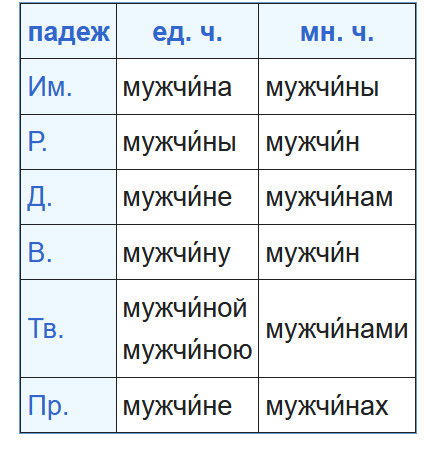
I have just looked up several definitions and they all tend to say "masculine" but if the grammatical declension is feminine, and the ending is feminine, I would need to dig deeper and call a more expert linguist to explain this better. It may have to do with the ending -(ч)ина?
@haxyr3 could you help here?
60 notes
·
View notes
Text
Born and raised surrounded by frosty Siberian landscapes, one of my sacred family traditions is welcoming the New Year with a plate full of these little pockets of joy.
Now, making pelmeni is a labor of love that requires time. So, I'm kicking off the pelmeni party today. Picture this: tomorrow evening, my husband and I will be toasting 2023 away and diving headfirst into 2024 with a steaming plate of these mouthwatering delights.

For those curious taste buds, here's my favorite recipe (apologies, no vegan options in this one).
Would you like me to spill the beans on my plans for teaching and posting in 2024? Let me know!
27 notes
·
View notes
Note
Hi there, idk if you're the best person to ask, but do you know of any good resources to start learning Russian? I have a book specifically for writing the alphabet, but other than that I'm not sure where to start. If there are any good books to get started with, that would be nice, as I find I learn better with them when compared to apps and such. Thanks :)
Hi! Honestly I only know @haxyr3 and I know she put together a list of resources at least once. I remember I had an ask earlier where people suggested some books/websites, but I can't find it anymore. :(
Who can help? ↓↓↓
35 notes
·
View notes
Text
langblr reactivation challenge week 2
Day 7: Share with everyone some langblrs you enjoy seeing on your dash, try to put at least 5 people (and make sure you @ them!).
I don't actually have a lot of langblr activity on my feed, which is one of the reasons I was excited to do this challenge T _ T
i follow from @aja-aja-hanja ~ I would love to follow any of my target language blogs (korean, french, arabic, russian, polish) or anyone who studies architecture / east asian art as well! : )
for korean: @bulletproof-korean
for chinese: @linghxr
for russian: @haxyr3
@ korean, chinese, arabic, russian, polish and french langblrs come find me pls
#langblr reactivation challenge#language learning#foreign languages#studyblr#langblr challenge#korean langblr#chinese langblr#mandarin langblr#russian langblr#arabic langblr#egyptian langblr#polish langblr
22 notes
·
View notes
Text
53/100 days of productivity
Today I decided to see where I'm at regarding noun declension and tried to fill in a declension table based on the one that appears in a set of bookmarks that I was gifted by @haxyr3. I didn't do as bad as I had expected, but I did mix up the prepositional plural endings with the dative plural ones and the accusative endings for animate and inanimate nouns. (My mistakes are in blue.)
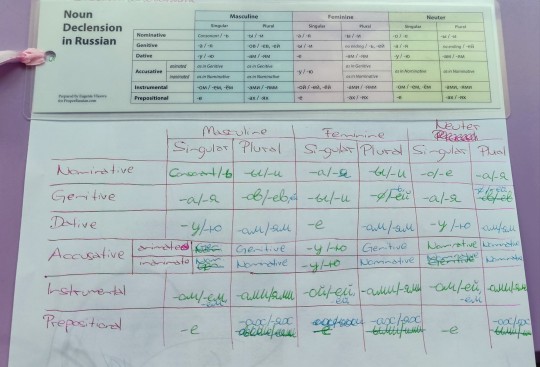
However, I think that there's a mistake in the bookmark in the nominative plural endings for neuter nouns.
I also wrote down a brief grammar explanation regarding declensions, because I either didn't learn about them at the beginning or have forgotten about them 😅
8 notes
·
View notes
Quote
Привет! В эфире “Пять минут” – подкаст для тех, кто почему-то учит русский язык. Меня зовут Евгения Власова. Я преподаю русский язык и веду блог, который раньше назывался “Proper Russian”. С февраля месяца этого года мой блог и все аккаунты в социальных сетях называются “Нахуяз”.
Почему так?
Пять минут. Выпуск 27. Война и мат – HAXYR3
0 notes
Text
✨ Tips for Independent Russian Learners ✨
This is my entry for @haxyr3‘s weekly challenge: three tips for independent language learners, that is, learning without the aid of a teacher or a classroom environment. I’ve seen a lot of general tips so far, so I’ll contribute some that are specific to the Russian language. I’m a native Korean speaker, learning Russian for around 5 years now.
#1: Don’t neglect the stress (ударение) while learning new words!
This is SO IMPORTANT. Every time you learn a new word, learn where the stress falls within it! Don’t make the mistake I did of thinking ‘oh well... it’s being able to read the word that matters’, because this will come back to bite you during listening comprehension 😂 If you have auditory processing issues like me, this goes twofold, as I’ll illustrate below:
youtube
This is a production of Chekhov’s Вишнёвый сад (The Cherry Orchard). I know this play quite well. I read two English translations of it, wrote an essay on it while I was at university, etc. However, the first time I listened to the original Russian dialogue, this was all I could make of it (from 2:25):
Лопахин: ········ слава богу. Который час?
Дуняша: Скоро два. Уже светло.
Лопахин: ···········опоздал поезд? Час···· два, по ·········· ре. Я···· хорош, какого дурака свалял! Нарочно приехал сюда ······ станции вст···· вдруг проспал… Сидя уснул ·············· ты меня разбудила.
Stress isn’t just important for pronunciation purposes - it’s the thing that marks where the words are amidst all those syllables. If you can’t hear where the stresses fall, you won’t know what words you’re dealing with, even if you understand them on the page. The above lines are comprehensible once written out, and with added stress marks, I can finally follow the dialogue:
Лопахин: Пришёл по́езд, сла́ва бо́гу. Кото́рый час?
Дуняша: Ско́ро два. Уже́ светло́.
Лопахин: На ско́лько же э́то опозда́л по́езд? Ча́са на два, по кра́йней ме́ре. Я-то то́же хоро́ш, како́го дурака́ сваля́л! Наро́чно прие́хал сюда́, что́бы на ста́нции встре́тить, и вдруг проспа́л… Си́дя усну́л. Доса́да… Хоть бы ты меня́ разбуди́ла.
I often get lost with spoken Russian, and I believe this is largely because I neglected to learn the stresses with much of the basic vocabulary. Don’t be like me and fall into the trap of thinking you don’t need it, just because textbooks/online resources/some language apps don’t mark it.* Look up your words on the dictionary, listen to it on Forvo**, make notes as to when and if stress shifts between grammatical forms (e.g. вода́ - во́ду). In fact, I’d advise not relying on apps when it comes to stress at all. You’re better off listening to music, watching shows, whatever lets you hear how native speakers talk.
There’s no shortcut here. You just have to learn it, since there’s no universal rule for where the stress falls in any given Russian word. For an independent learner this is likely to be one of the biggest pitfalls, so don’t give up - but proceed with caution!
* For example: Drops is a great vocabulary aggregator, but stress is not marked; Duolingo does not generally mark stress, except in Tips sections. Memrise courses may or may not mark them, but I wouldn’t rely on it. Making your own notes is always the best way to do it.
** Even if not Forvo, always go for audio that was spoken by real people! AI-generated content is often misleading, if not outright incorrect.
#2: Consider your methods for typing in Russian.
There’s a lot of writing involved in learning, and being acquainted to the Russian keyboard will help greatly. I suggest one of those critters:

Keyboard stickers! (Mine use three languages, hopefully yours won’t be so crowded.) Or an entire Russian keyboard, if you prefer. If you’re on a tablet or mobile device, the Russian keyboard is already there, and you won’t even need anything extra to use it.
Get familiar with where the letters are, is what I mean. Unless you’re making notes 100% by hand, some degree of typing is unavoidable, and if you don’t already have Cyrillic on your keyboard it’s hard knowing where anything is. It’s possible to obtain a phonetic layout (e.g. so that the Russian В corresponds to where your English V is), but the average Russian keyboard doesn’t use it, so it’s best to get used to the latter from the beginning. I took up Russian with the intent to write fiction in it eventually, so this was very important 😌
#3: Learn to read the Russian cursive.
This is an odd one. I can both read and write the Russian cursive, but I’m not actually sure if learning to write it is necessary; if you share physical correspondence with a penpal, or you’d like to take handwritten notes quickly, sure. But most things are typed nowadays, so I can’t imagine it’s a disadvantage to not know how to write in cursive.
What I specifically recommend is the reading. You might not need to produce any cursive, but it’s very possible you'll be subjected to other people’s handwriting, whether in a letter or notes on a text or a fancy menu or something. Being able to interpret those is better than not being able to read it at all, you know? Russian cursive looks sufficiently different from block letters that it warrants separate attention to read. Not something you need to learn from the onset, but it helps if you can do it.

I learnt to read and write cursive from The New Penguin Russian Course by Nicholas J. Brown, a truncated sample of which is above. There are better resources for writing, imo, but this book actually explains the distinctions between confusing letters, as well as tips re: loops or strokes that aren’t immediately obvious. Please check it out sometime!
I hope this is helpful to someone. Happy learning 💖
#haxyr3#langblr#russian language#russian learning#russian langblr#long post#russian adventures#i hope i've done this right and on time#if i think about it i've basically done everything wrong at some point during the learning process lmao#when i began learning russian i had already dabbled in quite a few languages so i figured i could just go with the flow as before#but russian was in many ways nothing like the languages i knew before#🤣🤣🤣#i think my life has become richer for learning it though
371 notes
·
View notes
Text
Craving deeper book discussions in Russian? Master the key vocabulary with this handy guide.
Free flashcards included!
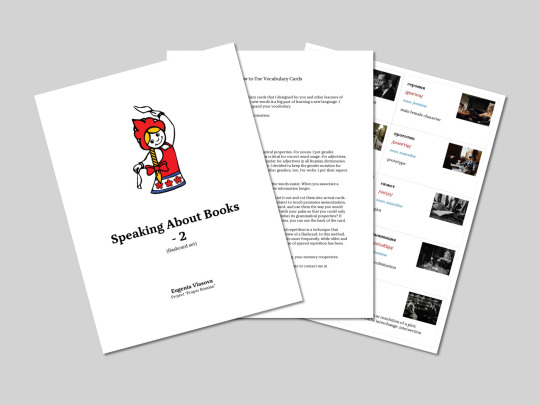
20 notes
·
View notes
Text

This is the holiday spirit I like:
'одевайтесь обнимайтесь теплее' -
Dress up(crossed) hug warmer!
because sometimes, hugs are the best attire!
Одеваться - to dress up;
Обниматься - to hug.
If you've reached that point of holiday food saturation and need a delightful distraction, how about giving my survey a go? If you haven't taken it yet, please answer those very short questions and help me to make the upcoming posts your go-to resource for Russian learning!
23 notes
·
View notes
Text
Feeling stuck speaking proper Russian? It's the idioms, my friend! This post unlocks 10 gems that'll make you sound like a pro. From navigating awkward moments to expressing yourself naturally, these phrases are your secret weapon!
Plus, grab FREE downloadable flashcards to master them on the go!
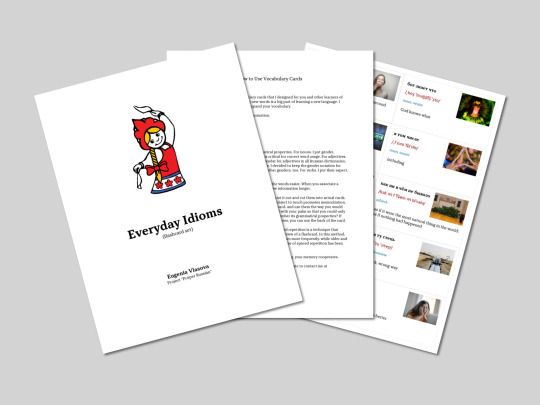
14 notes
·
View notes
Text
This week's "Five Minutes" dives into the enchanting world of Sergei Kozlov, a beloved Russian author for both children and adults.
His heartwarming tales, featuring characters like the Hedgehog and the Bear, celebrate:
Simple friendships
Appreciation for nature
Everyday wonders
Discover the hidden wisdom within these stories, all in authentic Russian, perfect for honing your listening skills.
Bonus! Each episode comes with a full script, so you can listen and read along, or revisit the lesson anytime.
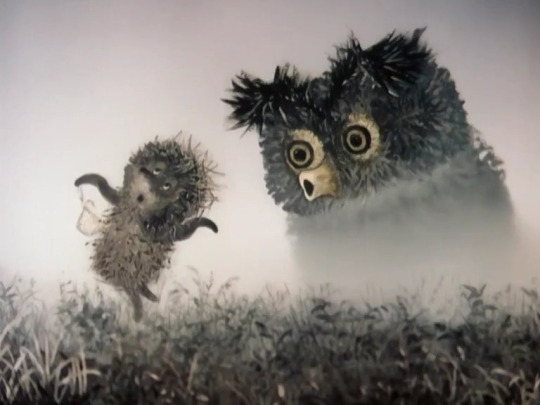
19 notes
·
View notes
Text
Ever wondered how Russians say "think hard" or "my brain is fried"? Dive into the wacky world of Russian idioms related to the mind! My latest blog post explores these colorful expressions and how they capture our mental struggles. Check this out here.
Bonus: free flashcards!

14 notes
·
View notes
Text
My latest Patreon article "Linguistic Dichotomy" is about the intricate relationship of everyday and sacred Russian language and it is FREE for everyone! 📚✨
Learn a bit of Christmas lexicon and discover the historical roots that shaped the separation between everyday language and the sacred tongue - from the nuances of childbirth terminology to the profound distinctions between "подарок" and "дар".
Your support means the world to me! If you enjoy this exploration into language and culture, consider supporting my Patreon to help me continue creating enriching content.
Thank you for being a part of our community!
22 notes
·
View notes
Text
This week's Friday Vocab Vibes explores the powerful prefix "без-" (without, -less). Whether you're a seasoned Russophile or just starting your language journey, this lesson unlocks fascinating ways to describe people, ideas, and even books!
Dive into:
Безвкусный: Not just tasteless food, but also pretentious writing!
Беспощадный: A ruthless depiction of a society consumed by violence. ️
Бесценный: Discover an invaluable book that will inspire you.
Бессмертная: Explore the enduring power of a classic poem.
And the best part? FREE vocabulary cards!
While this lesson is open to everyone, your ongoing support on Patreon fuels my passion for creating engaging and insightful language content. Every contribution, big or small, makes a difference!
Yours,
Eugenia V.
15 notes
·
View notes
Text
I believe that every book finds us at the right moment. Arkady Ostrovsky’s hardcover book The Invention of Russia: From Gorbachev’s Freedom to Putin’s War sat on my bookshelf for several years until I realized I needed to read it. That happened earlier this year, when Mr. Ostrovsky published his 8-part podcast, Next Year in Moscow, in which he talked to people who had left Russia after the war began. The people he talked to ranged from famous actresses to those who had never led public lives but were unable to stay in the country that launched a criminal war against their neighbor. Guests told Ostrovsky about how the war changed their lives, how they felt when they learned about the beginning of the war, etc. Most importantly, together with the host of the show, the guests tried to find an answer to the question, how could the war have happened at all?
I started looking for information about the podcast host and thus learned about his book and discovered that I had already purchased the book many years ago, namely when Russia annexed Crimea. The onset of the Russian invasion and full-scale war in Ukraine was the backdrop against which I read the book and which highlighted the depth and accuracy of Mr. Ostrovsky’s dispassionate but empathetic observations.
Read more ...
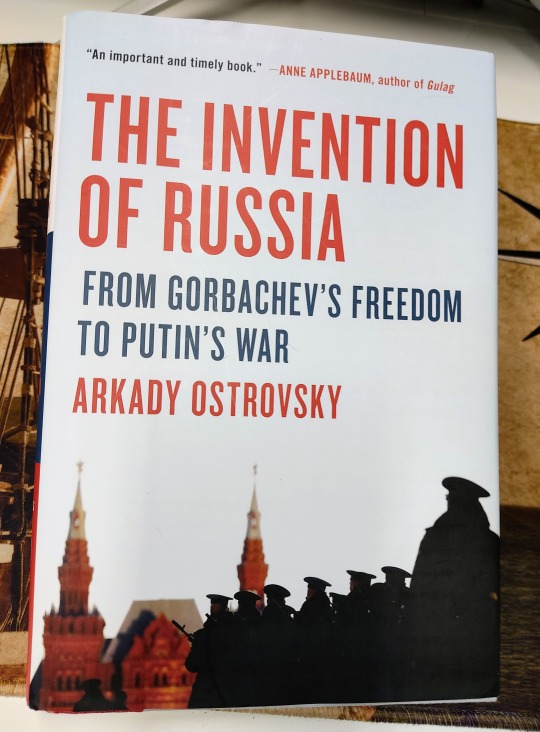
38 notes
·
View notes
Text
March on HAXYR3: Idioms, Podcasts & More!
Hey language lovers! Did you miss the epic content I unleashed on HAXYR3 this March? Don't worry, comrades, I've got your back!
This month was all about mastering those tricky Russian idioms that make you sound like a native. I unleashed four sets of 10 everyday idioms EACH, complete with downloadable flashcards on the website. Forget stuffy textbook expressions - these are the ones native speakers use on the street! Here's a taste:
Death with a Twist: From the poetic "уйти в лучший мир" (go to a better world) to the quirky "сыграть в ящик" (play in the box)! ⚰️
Mind Games: Dive deep into idioms describing intellectual challenges - because let's face it, learning Russian can be a wild ride!
Native-Level Ninja: Master these colloquial gems to navigate awkward situations and conquer anxiety like a boss.
Everyday Essential Expressions: Spice up your Russian with these common phrases and sound like you've been living in Siberia forever!
I threw down some quizzes to see if you guys could crack these common expressions. Turns out, idioms can be tricky beasts! Phrases like "куда ни шло" and "в том числе" had everyone scratching their heads. But fear not! Download those flashcards and be on your way to mastering idiomatic Russian.
My podcast "Пять Минут" (Five Minutes) is BACK! I'm all excited to share this podcast designed specifically for upper-intermediate and advanced learners. It's 100% pure, unaltered Russian, but don't worry, I won't leave you hanging. Each 5-minute episode comes with a full transcript for you to read along and boost your listening skills. This season, we're diving into hidden gems of Russian culture. I started with a mind-blowing Soviet movie that predicted our AI reality and the whimsical tales of Sergey Kozlov. The AI story was so fascinating, I even shared it in English!
Looking Ahead & How You Can Help!
March was a treasure trove of free resources, but April promises even more! To keep this awesomeness rolling, consider supporting me on Patreon. My patrons are basically my rockstars! Their suggestions for future topics get top billing, and they unlock exclusive deals on paid materials and merch.
Spread the Love!
Hit those like, share, and comment buttons! Your feedback fuels my fire and helps me craft even better mini-lessons for YOU! See you in April!
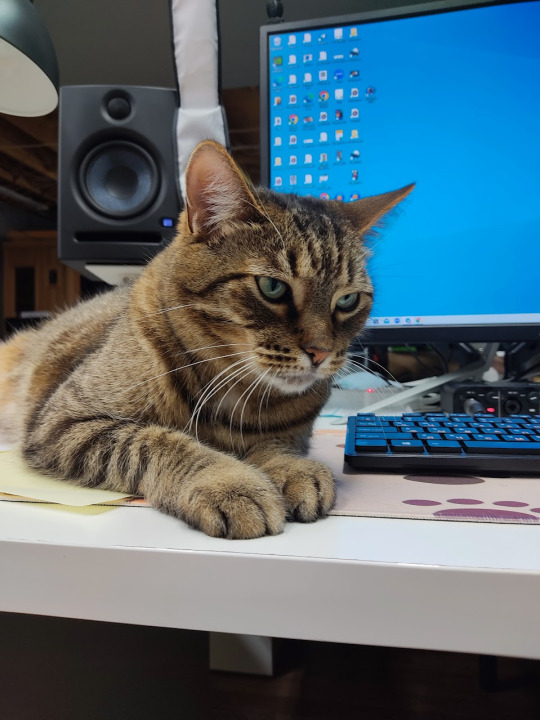
Cache the Magnificent assisting me in my podcast studio
14 notes
·
View notes